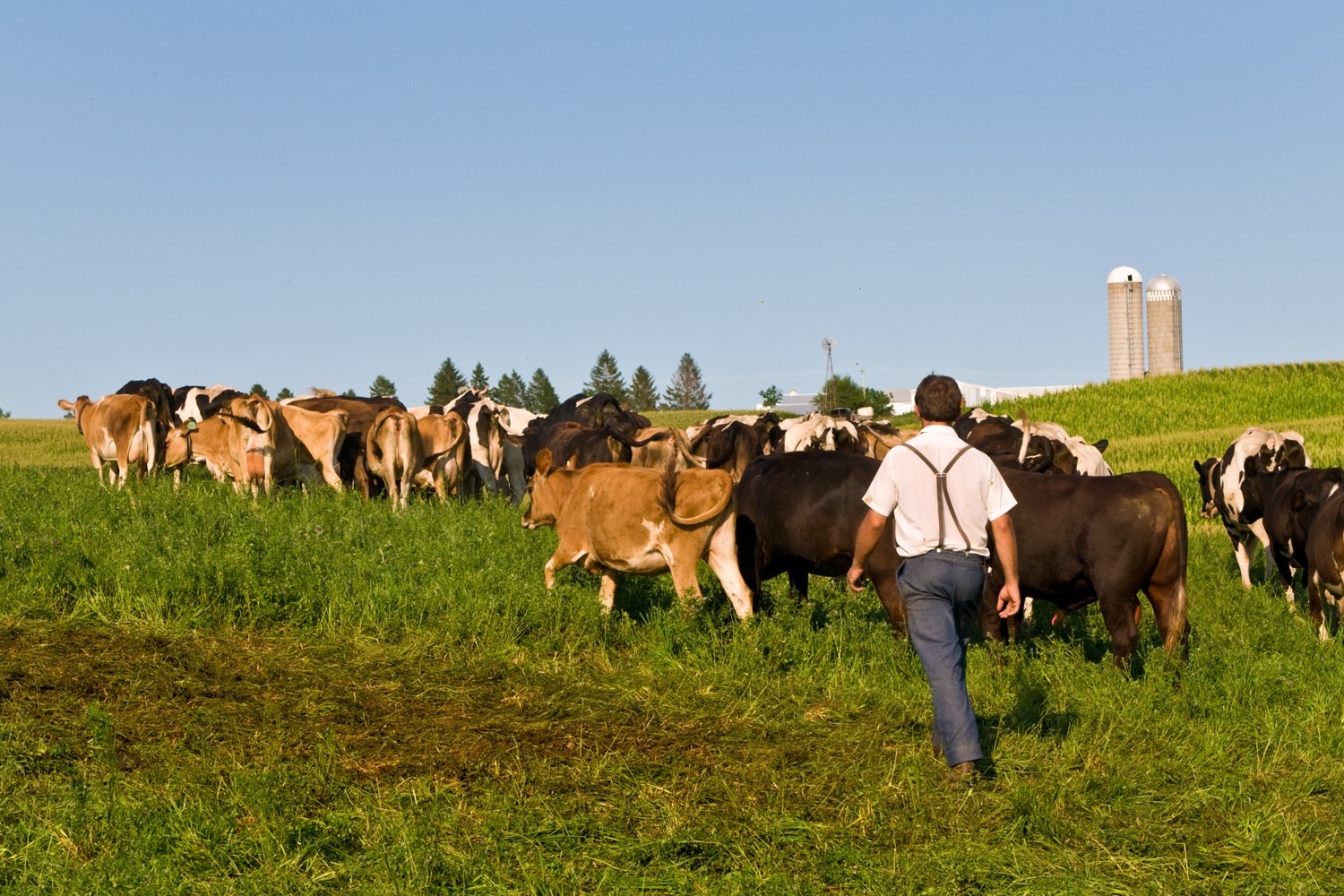Organic dairy farming can store carbon and reduce greenhouse gas emissions, study finds

Published: October 4, 2022
Category: Organic News, The Non-GMO Blog
A new study in the August issue of the Journal of Cleaner Production revealed that farms can sequester carbon and reduce overall greenhouse gas emissions, as seen through a dairy lifecycle assessment conducted on Organic Valley farms. The University of Wisconsin research found that small organic dairy farms using pastured grazing and organic practices report emissions 24% lower than conventional U.S. dairies due to the carbon sequestration benefits of organic pastures.
This method of accounting for carbon sequestration benefits of grazed pastures makes this study the first of its kind. Tillage and land use management, avoidance of synthetic crop inputs and use of organic crop amendments, cattle longevity, and use of manure as a fertilizer are also factors affecting the carbon stock.
“The science proves out what we all intuitively knew was the case: when you have pasture-based systems and organic crop production you have a smaller carbon footprint,” said Nicole Rakobitsch, director of sustainability at Organic Valley.
Organic Valley is also launching a new carbon insetting program which purchases carbon reduction from its farmers and helps producers implement site-specific projects like agroforestry, enhanced manure management, and on-farm renewable energy.
Organic & Non-GMO Insights October 2022








